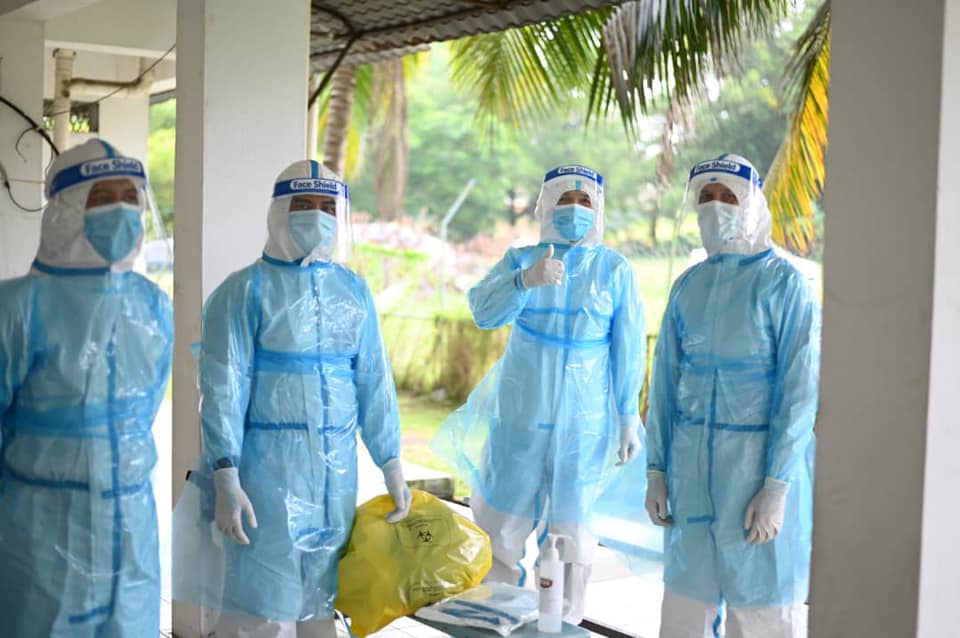My colleagues and I were in the fifth batch that graduated from the Faculty of Medicine at the University of Malaya in Pantai Valley. Most of us are just less than two years short of five decades in active clinical practice.
Unlike most of my colleagues, I had opportunities for career change during this time. In looking back, I am thankful that I did not take on these opportunities, which were tempting, to say the least.
The advice of Prof TJ Danaraj, Foundation Dean, in his speech to the University of Malaya Medical Alumni Association, on July 27, 1985, still remains in the memories of many of my colleagues who were his students, i.e. “Individually I ask of you: first, that at all times you practise the best caring medicine as well as scientific medicine. Secondly, you must ensure that all segments of our population receive good medical care.”
All Patients Are Similar
My practice has included patients from all continents. They came from all walks of life — the powerful and the underprivileged, the unemployed, the poor, and the unwanted.
They were all individuals with individual problems. However, all of them shared similar traits. They exhibited the same emotions of concern, anxiety and sometimes, fear.
Sometimes, these emotions were expressed, at other times, they were elucidated. All needed comfort and reassurance. The colour of the blood of those that I operated on were the same, regardless of their race, religion or views.
Whatever their backgrounds — race, religion, gender and social status, they were all the same to me. The physical problems were less problematic than the mental and social ones to manage.
I tried to manage their problems as best as possible in accordance with the exhortation of Ambroise Pare, physician to King Francois I: “The art of Medicine is to cure sometimes, to relieve often and to comfort always.”
Patients’ decisions have always been respected even if contrary to my recommendations, in which case documentation will be in greater detail. I was guided by the unwritten code of professionalism that requires doctors to ignore our personal feelings and continue to provide care for our colleagues and patients regardless of their race, religion, gender or views.
Diversity In Health Care Workforce
Malaysia has a diverse population with health care seekers of different ethnic, religious and cultural backgrounds with its microcosm stated in the Tourism Malaysia tag line “Malaysia Truly Asia”.
There is global data that supports the belief that diversity in health care and cultural competence impacts the quality of care and patient outcomes. Many countries are endeavouring to ensure increased diversity in their health care workforces to ensure that no one is left out.
The more diverse the health care providers are, the better they can respectfully and knowledgeably provide quality and safe care to their patients.
When there is no or less diversity, it makes it more inhibiting for patients to seek health care. When everyone is the same, there is an increased risk of being boxed in by short-sightedness and narrow mindedness, both of which are impediments to quality and safe delivery.
Cultural competence is the ability to collaborate effectively with individuals from different cultural backgrounds. Such competence improves patients’ experiences and outcomes.
Measures that improve ethnic diversity and cultural competence of the health care workforce help to alleviate disparities and improve outcomes.
No Place For Racism In Health Care
In a media statement published on the Health Ministry’s Facebook site on 23 May 2021, the health minister stated: “Penelitian itu dicadangkan bagi memastikan graduan perubatan, khususnya dalam kalangan bumiputera, dapat berkhidmat secara tetap dan seterusnya mengurangkan kadar pengangguran bidang profesional di negara ini.”
This was also reported by a news channel.
I was at a loss for words when I read the health minister’s statement. Never in my wildest dreams could I imagine that any individual or organisation could propose that race be a criterion for appointments in the Ministry of Health (MOH).
The MOH has since then clarified that appointment to permanent posts was based on merit and performance. It did not, however, explain how the discriminatory proposal was included in the minister’s statement.
The Malaysian Public Health Physicians’ Association (PPPKAM) also denied proposing to the government to ensure permanent posts for bumiputera medical graduates.
The race, religion and gender cards have been the rhetoric of those fishing for popularity. No right-thinking person expects the MOH to countenance such outlandish proposals, let alone include it in the Minister’s statement.
With a few exceptions, Malaysian health care professionals have carried out its duties in a harmonious manner. Patients have been treated with the best possible care by a multi-ethnic, multi-religious and multicultural workforce.
Individual racism may be manageable, but systemic racism will serious negative impacts on the safety, quality and access to health care, with medium to long-term consequences for the health care delivery system and the country.
Junior doctors deserve better
It is time that the government find a solution to the dilemma of the young doctors, dentists and pharmacists in the MOH, instead of entertaining discriminatory proposals.
The young health care workers have contributed much to the nation in these difficult and challenging Covid-19 times, notwithstanding that health care is the only essential service in which large numbers hold contract positions.
Surely, they deserve better than having to face so much uncertainty. What will health care delivery be in the MOH without these contract doctors, dentists and pharmacists?
There has to be definitive and transparent pathways for postgraduate specialisation and training. Transparent and easily available criteria, and selection for appointment to permanent posts will avoid perceptions of bias.
The terms and conditions of service for contract staff should be the same as those in permanent positions when they are doing the same job.
The following statements are instructive.
Dr Walid Alyafi, consultant anaesthesiologist at the King Abdul Aziz Medical City in Jeddah, Saudi Arabia stated that the first of seven lessons he learnt from Prof TJ Danaraj was “Don’t judge people by their looks. Don’t be a racist.”
Mohamad Safa, Lebanese representative to the United Nations, stated “Our world is not divided by race, colour, gender or religion. Our world is divided into wise people and fools. And fools divide themselves by race, colour, gender, or religion.”
Nelson Mandela, who took South Africa out of apartheid, stated “We must ensure that colour, race and gender become only a God-given gift to each one of us and not an indelible mark or attribute that accords a special status to any.”
In short, there is no place for racism in health care.

Dr Milton Lum is a Past President of the Federation of Private Medical Associations, Malaysia and the Malaysian Medical Association. This article is not intended to replace, dictate or define evaluation by a qualified doctor. The views expressed do not represent that of any organisation the writer is associated with.








